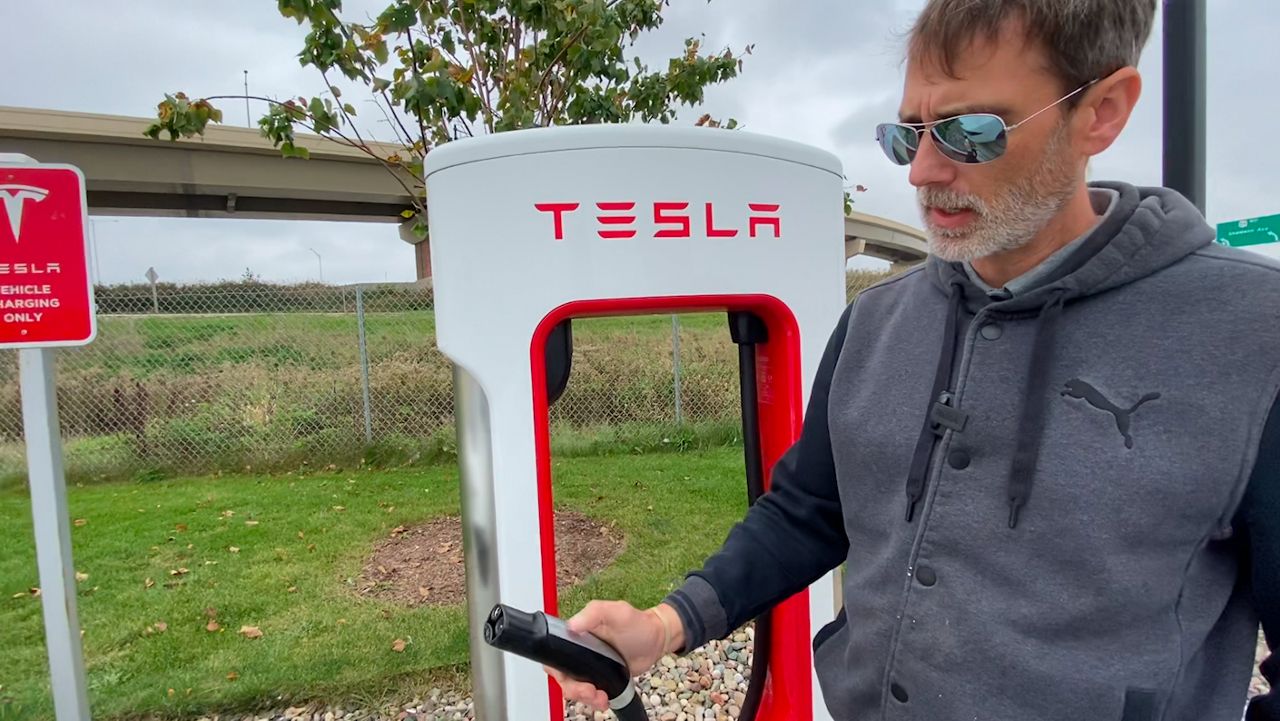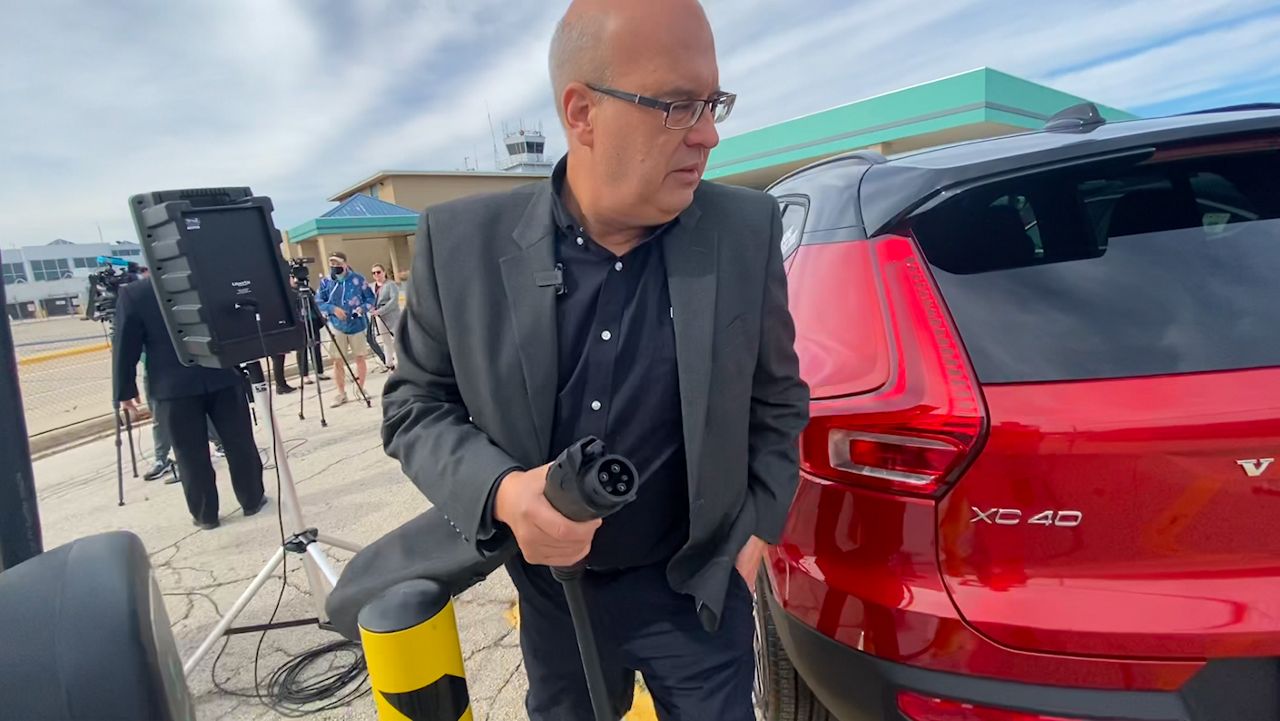HOWARD, Wis. — Craig Key ate a sandwich in the parking lot of a Meijer store as he filled up the batteries on his Tesla.
An electric vehicle owner since early this summer, he said he wouldn’t go back to driving a gas-powered car. First there’s the environmental impact, but he had other reasons, too.
“The performance is better than anything out there. I like the instant torque,” Key said. “Less maintenance. Really the only thing I have to worry about is tires, so that’s a big load off. It’s just an easier car to drive and maintain.”
Finding a place to charge isn’t an issue for him either. A network of Tesla charging stations keeps him moving in most parts of Wisconsin, while a growing network of chargers provide other options in more rural areas of the state.
“What’s critical is having the speed of the charging,” he said. “You can have charging points wherever you want, but if it takes eight hours to charge it’s no good. You really need to get to a place like Tesla has where you can get to a useable range in 15 to 20 minutes.”

Wisconsin has more than 500 charging stations. A little more than 100 are high-speed chargers, according to Renew Wisconsin.
Steve Nieland helps design charging systems for EnTech Solutions in Menasha. It recently installed a solar charging system at Green Bay Austin Straubel International Airport.
He sees room for more growth in the market.
“It’s improving but we still need to do more, there’s not nearly enough,” he said about charging stations. “Think of how many gas stations we see.”

A pending infrastructure bill could provide $7.5 billion in federal money to build hundreds of thousands of charging stations nationwide.
Like gasoline, electric users pay to fill up their batteries.
Nieland sees a day in the future where chargers are side by side with gas and other fuel options.
“I have no doubt we’ll reach a point — if we look 10 to 15 years down the road — where you’ll see most gas stations […] and they’ll be a combination,” he said. “They’ll have a number of charging stations similar to where we have gas pumps now and I’ll have gas pumps there also. I fully expect I’ll see hydrogen pumps there as well.”
Neither Nieland nor Key expect the push for more charging infrastructure to cease anytime soon.
Key expects it will continue to grow.
“It has to,” he said. “Because electric is here to stay."
A map of EV charging stations in Wisconsin can be found here.



